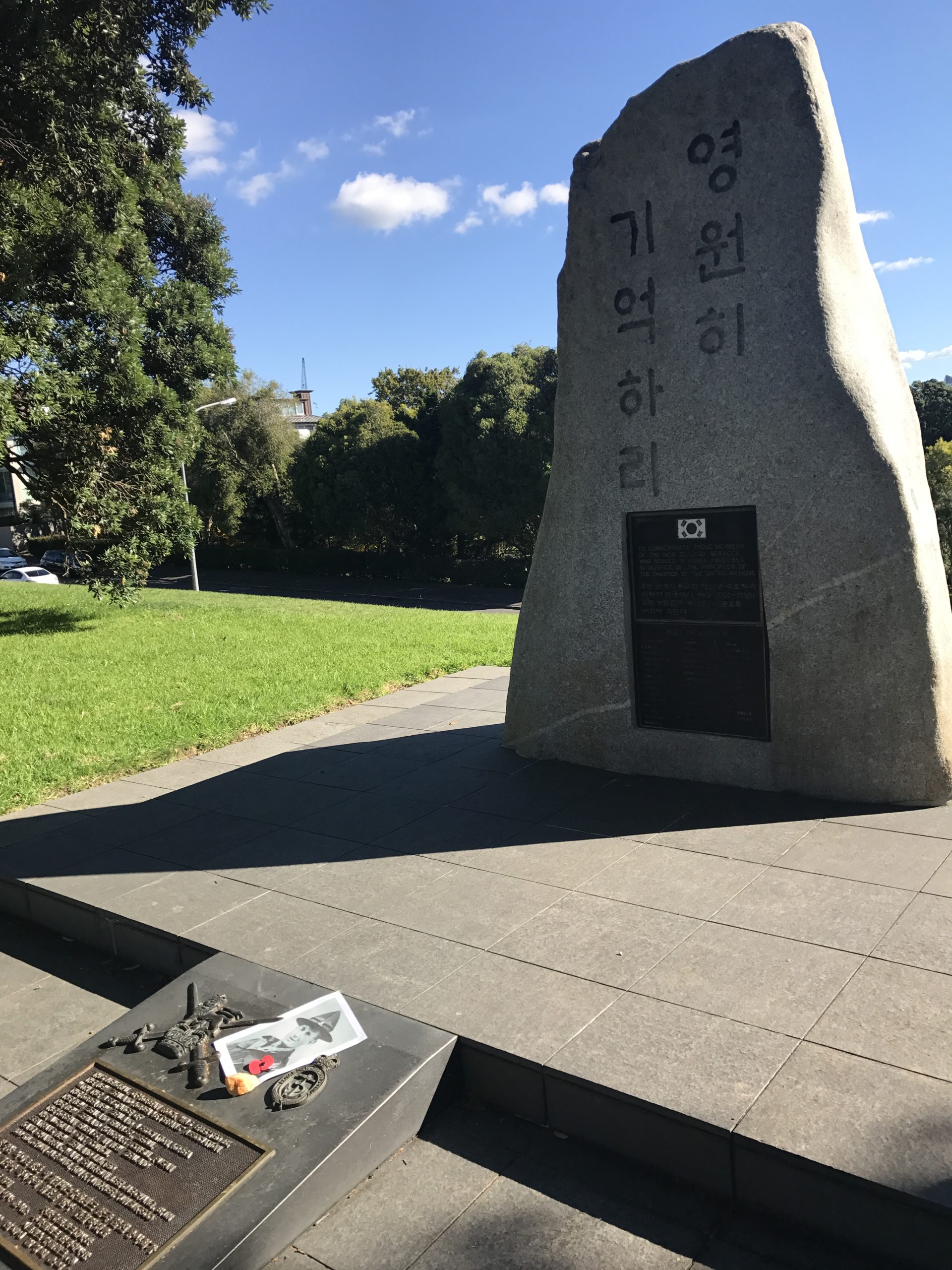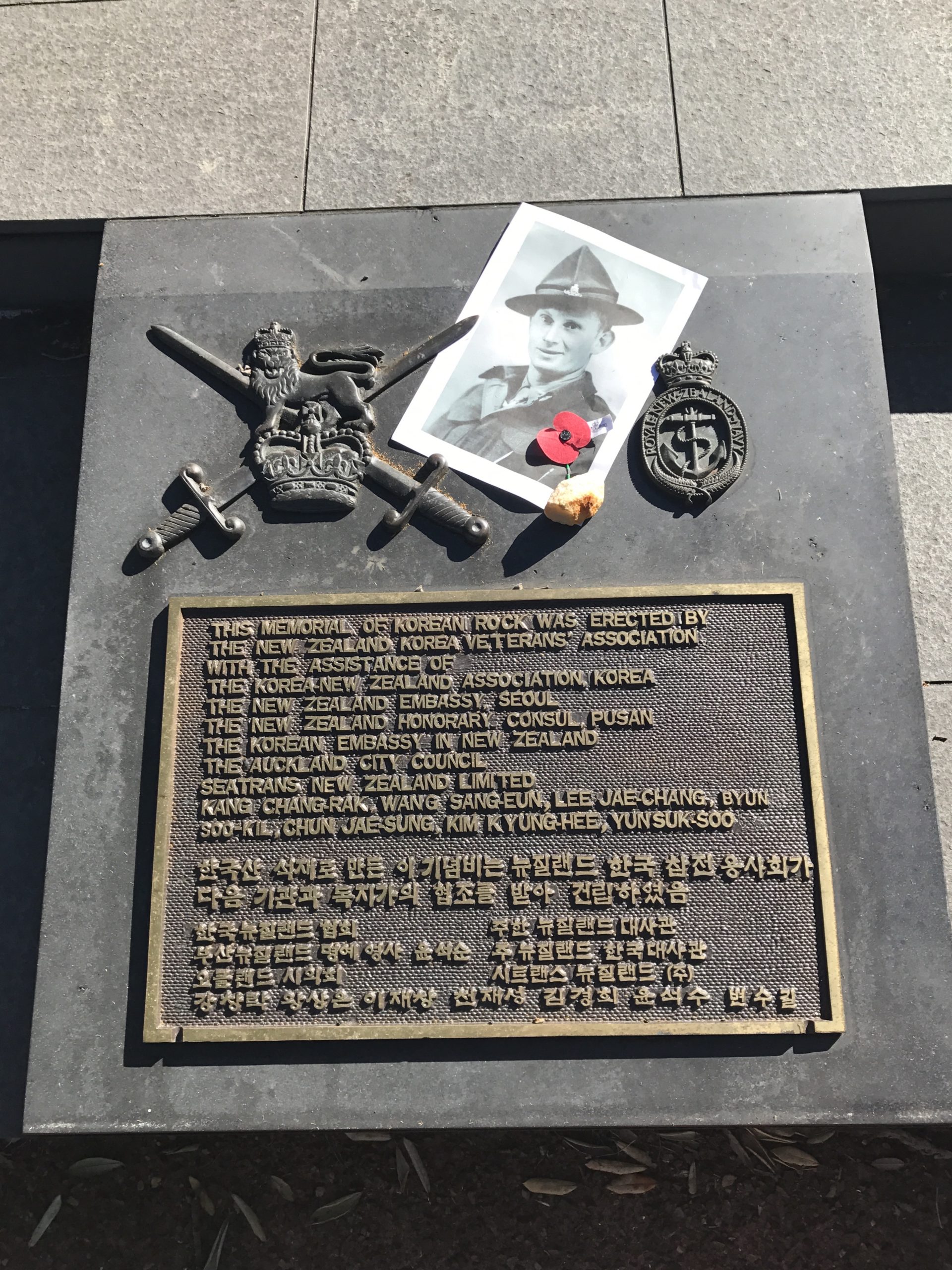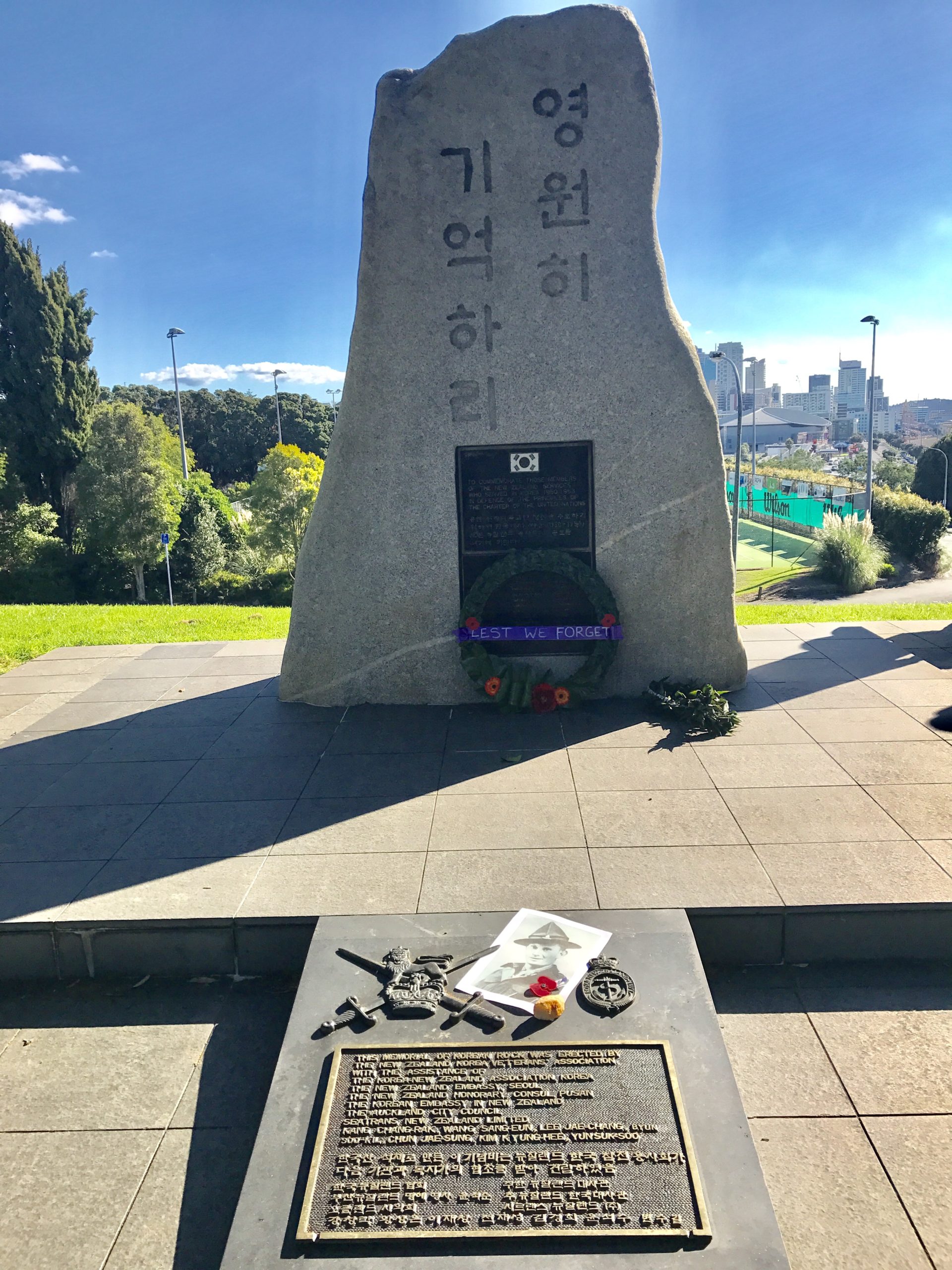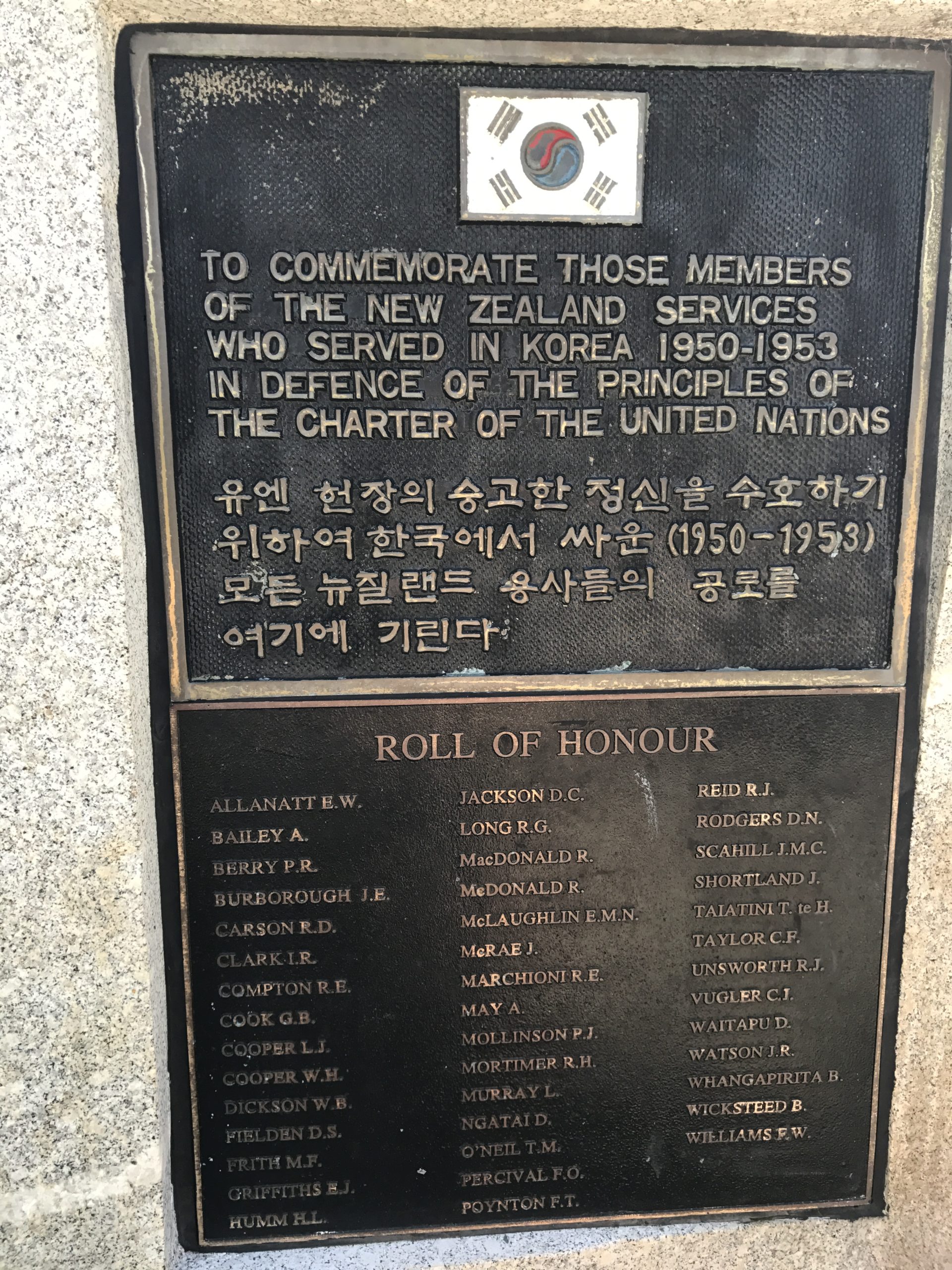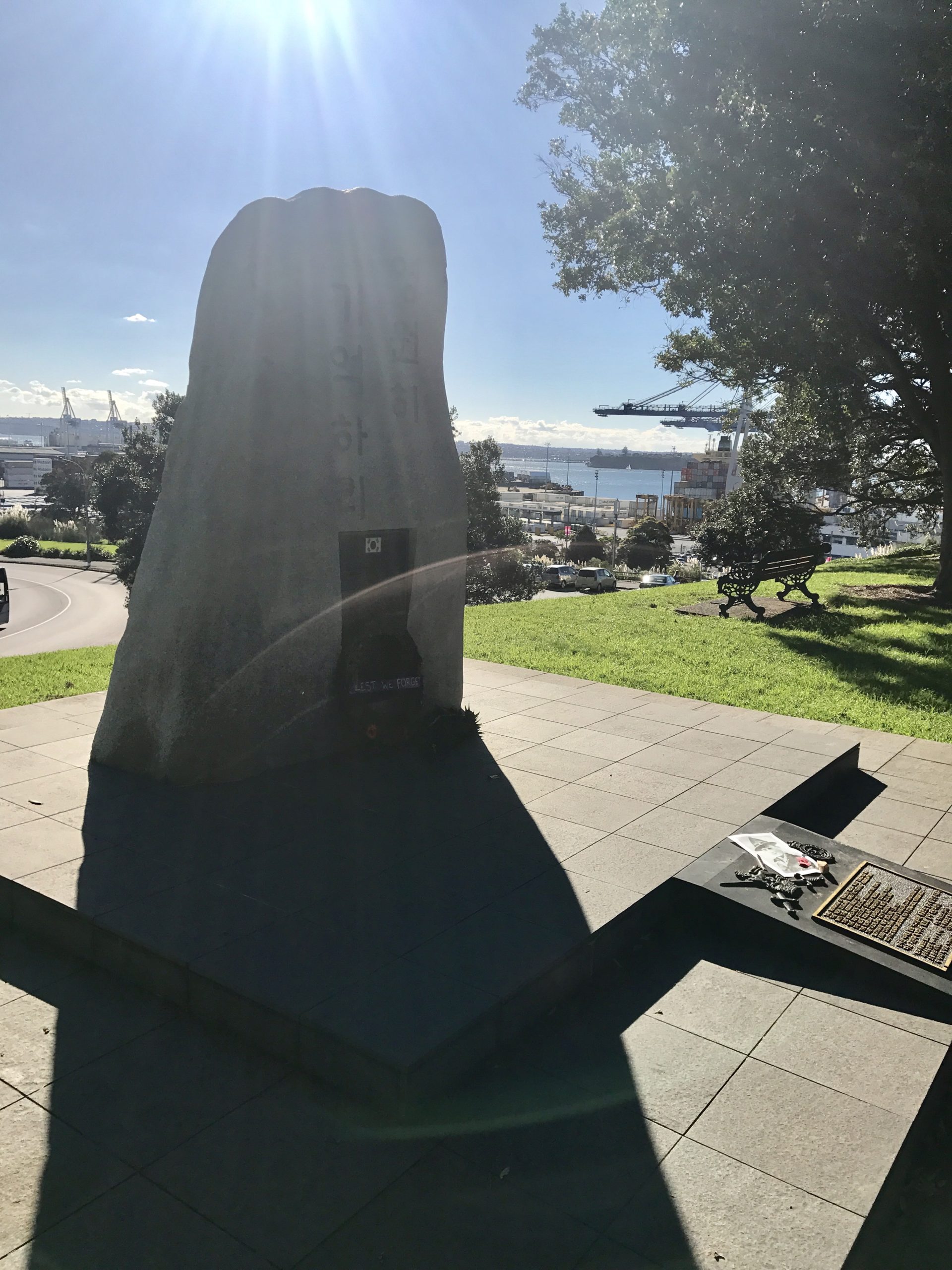Veteran Stories
>> My name is Ron McMillan. I was in the Korean War in 1952 to '53. I served in the New Zealand Navy. I was on the frigate HMS Hawea, and we were there for 14 months. We patrolled up the west coast, went up as far as to the Yalu River and down south and yonder. The ship went the first time, went on the other coast, and that was the one that used to be shooting the trains in the tunnel. We stayed on the west coast, and we patrolled up there day and night.. Our base there was an island out from Incheon called [FOREIGN LANGUAGE]. It's now changed. It's got a new name. That was our base, and we anchored there, so we patrolled day and night for 14 months.
>> So you served for 14 months?
>> Yeah, I put in 14 months.
>> Did you volunteer?
>> I was in the Navy already.
>> You were already in the Navy?
>> Yes, yes. I joined the Navy when I was 17 1/2, and I went up there when I was 19.
>> Wow. So what do you remember from the war? Do you remember seeing the troops from other nations or maybe civilians?
>> Didn't see many civilians, only on the island. We never went on the mainland. Some of the other ships did, but they mainly got shot, so they stopped going on the islands. And we just stayed on the main island, so we saw the locals on the island. We still pay to the children. We send out money every year to the children of Seoul for ... We've done that for years and years.
>> Even now?
>> Yes. Yes, we go up there. We go for Anzac Day. The Koreans would be up there now. So they hand out bursaries to the schoolboys and girls. We've done it for years.
>> Really? That's fascinating. Since the war?
>> Yeah. It started some years after the war, and that's it with the bursaries. And we'll go on with so much money to be [INAUDIBLE].
>> Wow! That is ...
>> So that's the only Korean people in the Navy we actually met, was the islanders on that island.
>> Even now you send them ...
> Yes. Yes, every Easter we go to Kapyong. They have that big thing there, and they have all the hanging out at Kapyong. The Aussies do it, and we do it.
>> So since you mentioned it, I want to hear it from your side, the Battle of Kapyong and Maryang-san.
>> Well, we were in the Navy, so we didn't see that. We got up and went up and looked up on the ... We've got the revisits, but we go to Kapyong. That's where we hand out the bursaries to all the kids up there.
>> Wow! Well, you were so young. What kind of impact did it leave on, I guess, your life and the way you look at life, serving in a war?
>> We were young, and we were there. It was a bit of an adventure, that's all.
>> That is true. I know a lot of the grandpas do mention that they went ... But you come back now. It may have been an adventure that you were seeking, but now you're looking back, and Korea is very prosperous.
>> I've been back four visits. I've had four revisits, and every time you go, you just see how it's advancing and advancing all the time.
>> And doesn't that make you proud?
>> Oh, it does. Yeah.
>> Yeah. So the adventure turned out to be something larger than an adventure.
>> [INAUDIBLE] my friends there. My lady, she's one of our lady friends. That's right. And we've got Melissa Lee. We were with her granddad and her dad, so you're not by yourself.
>> I always ask, but what are some of the things in your free time?
>> Free time, well, in the Navy, you didn't have a lot of free time. You had about 4 hours on and 4 hours off, day in and day out. So, you were on watch for 4 hours, and then in your off time, you had to do your home things, washing, cleaning the ship. You had to clean the ship the whole time, and that's it. so you didn't have much free time.
>> Really? No rest and recovery in Japan?
>> Yes. Oh, yes. We went down to Japan.
>> Okay.
>> In Kure and Sasebo a bit down there.
>> I heard that from the Aussies.
>> And Hong Kong. We got into Hong Kong.
>> Oh, you did?
>> Yes. Yes.
>> Okay.
>> Every couple months you go down there maybe for a week, replenish the ship, and then away you go back up. And so we did a lot of bombarding and stuff and chasing sandpans at night, who were trying to smuggle stuff through on the boats, but otherwise it was a lot of boredom time, really. A lot of it was just, "Where do you go?" and then you'd have hours and hours of boredom just doing nothing, just cruising.
>> Well, it's better than getting bombed, right? Yeah.
>> We got shelled a few times, but nothing ... It didn't hit us. I was a little bit lucky.
>> By which forces, the Chinese, the North Koreans?
>> Well, it was North. It could be the Chinese. I don't know who.
>> Did they have a strong Navy?
>> No, not on our side. I don't think so. There was nothing down there. In those days, the Chinese hadn't put their Navy in there yet.
>> I don't think the Chinese had a Navy. It was just all Army, a volunteer Army.
>> Yeah, that's right.
>> Yeah. Yeah.
>> Hundreds of thousands.
>> Hundreds of thousands. I think more veterans recall the Chinese more than Koreans.
>> Well, you see a lot of the memorial sites, and it says, "This place was overrun by the Chinese." It doesn't say the North Koreans. That's right, the Chinese. So when they joined up, they don't say that the North Koreans ran it.
>> So have you been active in the association?
>> I've been an association member, yeah, just a member.
>> You have so many medals on you from the war. It's ... Any for valor?
>> No. No. No. No. They're all different. That's Korean. That's Korean. That's Korean. That's police. I was a policeman.
>> You were a policeman?
>> Yeah. When I came back, I was a policeman.
>> Oh. So maybe the war did have that impact on you, right?
>> Yeah.
>> Yeah.
>> I've been a member of the Veteran's Affairs for years and years and years, I try to.
>> Well, okay. Well, thank you so much again!
>> Okay.
